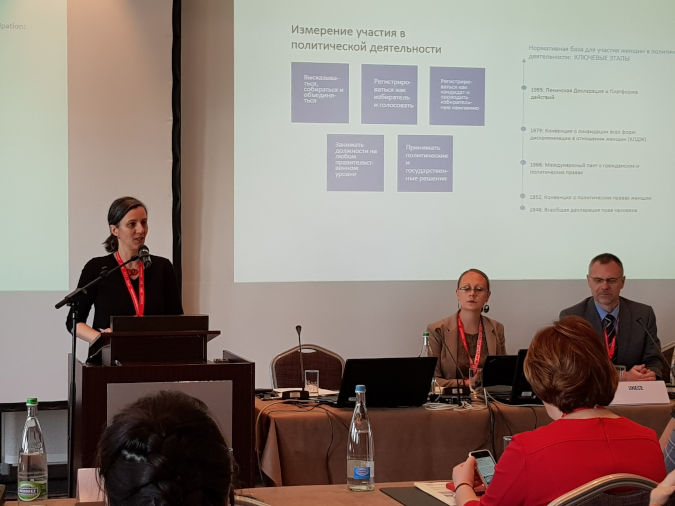To keep Global Goals promise, statisticians call for better gender data
Date:

Keeping the Sustainable Development Goals (SDG) promise to the women and girls of Eastern Europe, the Caucasus and Central Asia will require gender statistics that are better and more readily available, concluded the participants of a workshop held from 13 to 14 May in Neuchâtel, Switzerland. Following two days of lively discussions, practical exercises and sharing country experiences on issues such as political representation and entrepreneurship, participants from National Statistical Offices and United Nations experts called for gender statistics to be more widely available, disseminated and used.
Even though gender data is crucial for assessing progress and identifying gaps on the road towards meeting the SDGs, globally, 80 percent of the indicators for gender equality are lacking data.
Under the theme of "finding and filling gaps in gender statistics for SDG monitoring," around 30 participants from 13 countries gained new skills in assessing the needs for gender statistics at the workshop organized by the United Nations Economic Commission for Europe together with the Swiss Federal Statistical Office and UN Women.
In the session on measuring women’s political representation in local governments, Ionica Berevoescu, Policy Specialist at UN Women, called for stronger collaboration between statisticians and election committees. “It’s time for statisticians to work with electoral national bodies and to report on progress made by countries,” she said.
Participants also dived into a practical exercise where they identified the need to integrate political participation into national statistical systems and development plans. In this exercise, they also learnt more about data collection methodologies for tracking the proportion of seats held by women in local governments – a specific SDG indicator.
Meanwhile, entrepreneurship, because of the way it drives innovation and poverty reduction, is considered essential for meeting the SDGs. For this reason, integrating gender into entrepreneurship statistics was another topic explored by the participants. The focus was on ways to improve the collection and use of sex-disaggregated entrepreneurial data. Such data is fundamental for developing policies that would encourage more women to take up entrepreneurship activities currently dominated by men.
Participants from Azerbaijan, Albania, Belarus, Kazakhstan, Moldova and Georgia discussed how countries can determine what kind of gender statistics policy makers need and in what form. They also explored how regular, two-way and tailored data communication is vital for improving the availability and use of gender statistics.
UN Women’s Regional Office in Europe and Central Asia provides technical and financial support to countries to improve the production and use of gender statistics to monitor SDGs implementation through its Making Every Women and Girl Count programme.